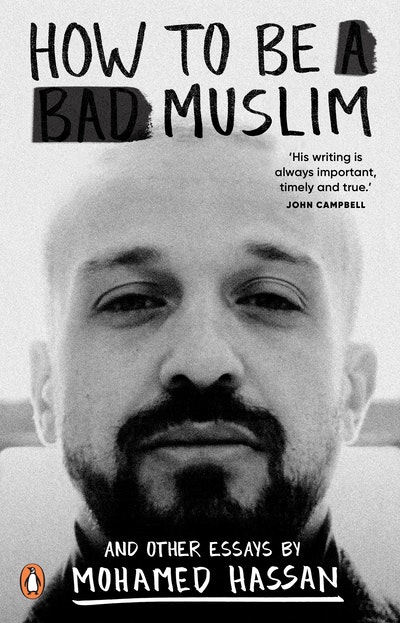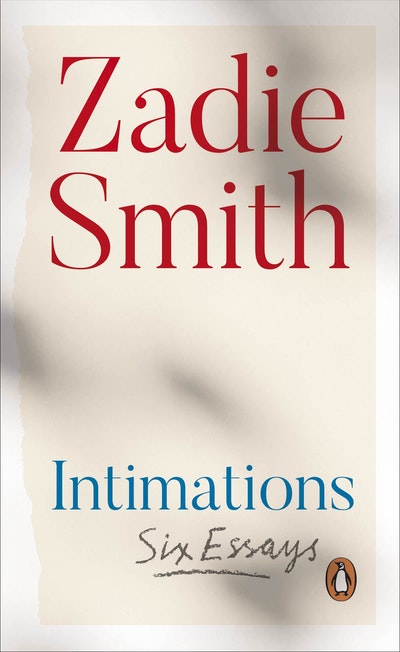- Published: 31 May 2022
- ISBN: 9780143776215
- Imprint: Penguin
- Format: Paperback
- Pages: 208
- RRP: $27.99
How to be a Bad Muslim and Other Essays
Extract
Still life with a pool of dreams
To'asavili was dreaming of cows swimming under the sea.
Andy ruined a cosplay event by spilling his drink on the PA system.
During the first lockdown, buckled into my parents’ house watching the world begin to end, I began having the strangest dreams. They came crashing into my life. Vivid. Anxious. Surreal. Every night, without fail, I was plunged into a parallel universe in which I was burdened by a weighted sense of importance and tasked with playing a vital role in a mystery of my own making.
One night, I was bartending a jazz event in Washington DC hosted by Jon Stewart (yes, the Jon Stewart) before abandoning my post halfway so I could register to vote in the midterm elections. Except all the polling booths were closed and I had no money for the bus.
Another night I found a pair of AirPods that let me see the last memory of their owner, which happened to be the final moments of a sailing apprenticeship training programme that had ended in a deadly shipping accident. Now I had to investigate to free the young sailing student who’d been framed for it.
It was too much pressure.
I was curious about why I was suddenly having this uninterrupted string of fantastical dreams, why they all felt so real, and why they were all so damn stressful. I posted something about it on social media, only to be met with a flood of similar stories from my friends all over the world. It turned out, I wasn’t alone.
Tali was accepted into a haven for lucid dreamers.
Kirsti uncovered Nick Cave’s darkest secret (turns out he’s a cannibal).
Amy got a massive crest tattoo across her stomach that said ‘100% British’ (she’s not British).
This was happening all over the world, all at the same time. I received stories from people in different countries, different time zones and different walks of life. They were all just as perplexed as to why these inexplicable dreams were visiting them each night.
It became a strand that connected us — intrepid sleepers journeying into the abyss, fighting angry cosplayers, Australian rock stars and the collective anxiety that we all felt, that was overwhelming us all. In response we conjured highly stressful but utterly nonsensical dreams.
In California, Briana’s indoor waterfall feature flooded her house.
In Istanbul, Laurelie brought a squid back to life in a flowerpot.
In London, Mahmoud practised his spells for a war against other parts of the United Kingdom. (Also, he was Harry Potter.)
What was the meaning of all this? Well, I wasn’t the only one collecting dreams. Several research institutions worldwide have been conducting studies on the phenomenon, collecting data and stories, attempting to decipher what it means and what it says about our brains. The Lyon Neuroscience Research Center found that after France went into its first mandated lockdown, people began having dreams that were 35 per cent more vivid. A 2015 study by the Turku Brain and Mind Center in Finland found that anxiety can often lead to a lot of bad dreams.
There also does seem to be a link between irregular sleeping patterns and weird dreams. We tend to have most of our dreams during the deeper REM stage of our sleep cycles. So if, like me, you ended up staying up into the spooky hours of the morning and sleeping in more often, your chances of having vivid dreams were much higher because our brains were forcing us into longer REM periods of sleep to make up for the change in our circadian rhythms.
Studies done in the past have also shown links between traumatic events and dreams on a societal scale. After the September 11 attacks, people across the United States began to have disturbing and vivid dreams, processing their trepidation at night when everything finally went quiet.
It’s no wonder, then, that in the throes of the historically uncertain times we had found ourselves in, we were turning to our subconscious for answers. Dipping our mind’s toe into the murky waters of the sleep world in search of comfort or meaning, but instead finding suppressed and confused emotions lurking beneath the surface. We yearned to escape into the cosmos and feed our need for adventure, connection, and purpose, but instead found ourselves trapped at home.
And so, locked up, our minds wandered.
How to be a Bad Muslim and Other Essays Mohamed Hassan
Funny, elegiac and chilling, these essays from award-winning New Zealand writer Mohamed Hassan blend storytelling, memoir and non-fiction to map the experience of being Muslim in the C21st.
Buy now












